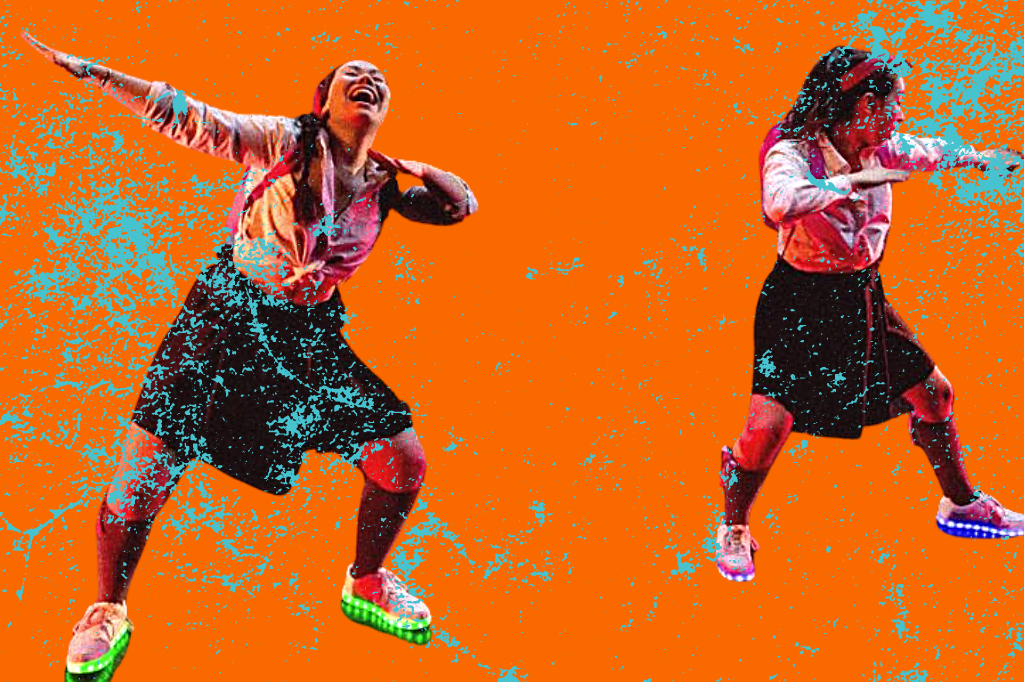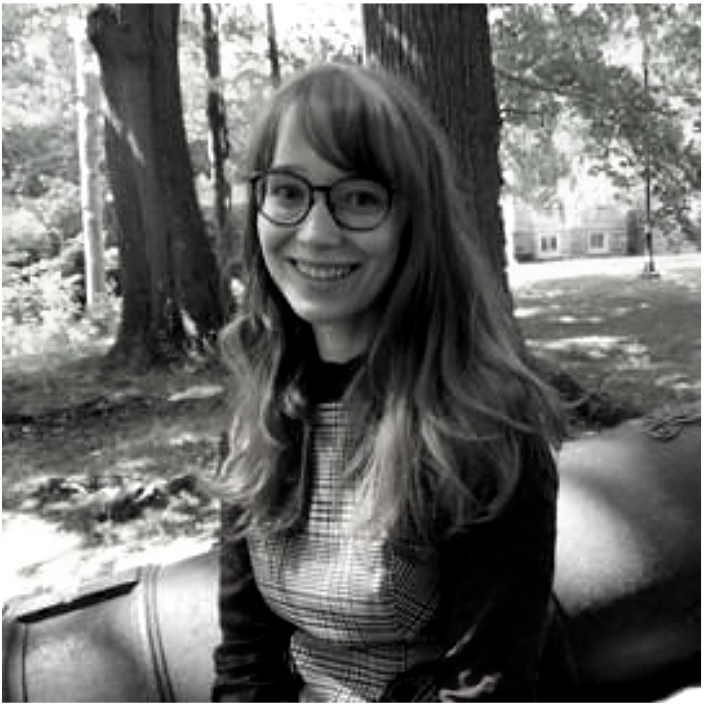“A Big Patchwork Blanket Stuck to the Skin”: In Conversation with Bâtardes ’ Chloé and Jade Barshee
“We’re rummaging through the archive of our childhood, looking for the keys. We’re rummaging in ourselves, trying to get back as far as possible in our youth to answer the question ‘where are you from?,’ because that’s when everything started. That moment.” – Chloé Barshee
Chloé and Jade Barshee’s show Bâtardes is the sisters’ first creation. And this month’s stay at Théâtre Passe Muraille with a third actor, Mathieu Beauséjour, will be their first time taking the play outside Quebec. In 2016, Montréal Arts Interculturels helped kickstart development of the piece; not long after they were working with the St-Ambroise Montreal Fringe Festival, finally presenting Bâtardes as we know it for the first time in March 2018.
Now, after four years of work and a pandemic, the sisters are ready to present Bâtardes to Toronto audiences with English captions by Nina Okens.
“So, how did it start?,” I ask the sisters over Zoom, each of them joining me from their homes in Quebec, a province we have in common, though I’m currently speaking to them from Toronto.
“Jade, tell your story! Tell it! Everything started with her, you know,” says Chloé: you can tell they’ve been down this line of questioning before.
“Basically, while I was at school for theatre in Ste-Hyacinthe in 2014-15, there was this workshop class where we could do anything. So, I wrote this piece called The Irreversible Effect of Ignorance, or The Day I Realized I Was Asian (L’effet irréversible de l’ignorance, ou le jour où j’ai réalisé que j’étais asiatique). It was about the first time I was asked the question: where are you from? (tu viens d’où ?), and the moment I realized, ‘oh, OK, I’m ‘different.’’”
That same moment is narrated in a podcast version of the play, released for 2020’s Festival Accès Asie during lockdown. It starts with faint music, then a recording of one of the sisters answering questions about her origins: no, she’s never been to Tibet, no, she doesn’t speak the language, yes, she’s from Quebec. Then, there are children singing and we’re described the womb-like red light filtering through a tube on a playground structure at a Bromont elementary school when, in second grade, a friend asks Jade the infamous question: “so, where are you from?” The question transitions into a cacophony of probing voices. The section breaks further still into catcalls with racial connotations and straight into the intro of Tokyo Drift (Fast and Furious) by the Teriyaki Boyz, finally returning to a distorted version of “no, I’ve never been. No, I don’t speak the language. No—”
Bâtardes is, at its core, the story of two sisters on a quest for their own identity. The multimedia and multidisciplinary “autofiction” (autobiography with a twist) uses real archival footage from their childhood and from a more recent trip to India. They went to discover the places their Tibetan father would have known in his youth. Their mother being Québécoise, this trip was supposed to fill in some of the no-man’s land, the lurch between cultures.
This use of real footage and the archival aesthetic is a self-aware construction of identity for the sisters. The sisters describe the aesthetic effect they were looking for as something like “a big patchwork blanket,” with the archival pieces “stuck to their skin.”
So — a work that bridges the gap between Tibetan and Québécois culture. You may be wondering how translating something like that works exactly: how would Toronto fit into this patchwork?
“Honestly, we’re excited to see,” says Jade.
“We really don’t know how it will affect the public in Toronto. […] It’s my first time performing in Toronto. It will be a good way to test the limits of our material and of our craft.”
She’s not worried though. “There’s something human, simple and universal in this work in the sense that a search for identity, everyone goes through one no matter what. It’s easy to relate. But it’s sure that with issues like inclusion and identity every community has a different stance. I’m excited to see how people will respond.”
Chloé adds, “I think it’s the first time we will perform this piece for an audience where there will be a lot of Tibetans because I think Toronto is the city in North America with the largest Tibetan population — something like that.”
“We’re excited to see what it will be like to perform this show for an audience where there might not just be one Tibetan in the audience, maybe a few more. More than in Montreal or elsewhere in Quebec. And [we’re excited] to see how the text will be received by the Tibetan community, because there are things that are said that can be shocking for someone who hears it out of context, who doesn’t have the whole work to understand why we say we’re ‘bastards.’” She ekes out a dry laugh.
“On the 29th of May,” Jade reminds me, “after the show, there will be a panel on mixed-race identity. […] I’m looking forward to talking with local artists with double identities to talk about how that resonates in their work and in their environment compared to us. We’re from a Francophone environment after all, the references, the humour is different.”
It’s true, and humour is a big part of Bâtardes. “There’s a lot of irony and sarcasm in the show,” says Chloé. “In our approach and in our writing,” adds Jade.
They tell me though that the captions will be more of direct translation than a readaptation. Audiences will understand, but inevitably some nuance will be lost. As an example, the phrase “pure laine” appears in the show. The epithet refers specifically to those descended from “pure” French-Canadian settler lines. There is no specific term for the phenomenon in English, so instead the translation uses the more general “old stock.” The meaning is mostly preserved, but you miss out on the image of the elderly, joual-speaking auntie or uncle using the term either to rally some sense of national identity or as a barely disguised stand-in for “white.”
What’s next for the Barshee sisters? Besides performing Bâtardes, they’re working on their second creation: Dernière Frontière (Last Frontier), a Quebec-Yukon joint project, with multimedia artist Véronique Lachance exploring our relationship to the land and the romanticization of the Great North.
After all, says Jade, “the land we set foot on has its own culture too: that influences us, that confronts us, that we can embrace or reject.”
“So, how does our desire to exist, with our own searches for identity, impact that land?”
Bâtardes opens at Théâtre Passe Muraille May 28 and runs through June 4.









Comments